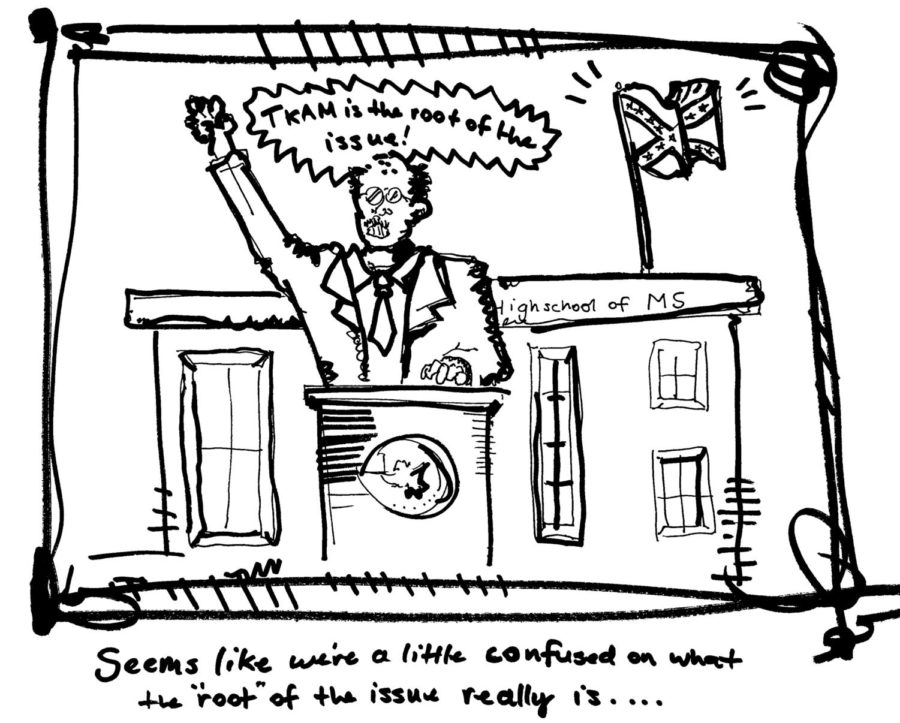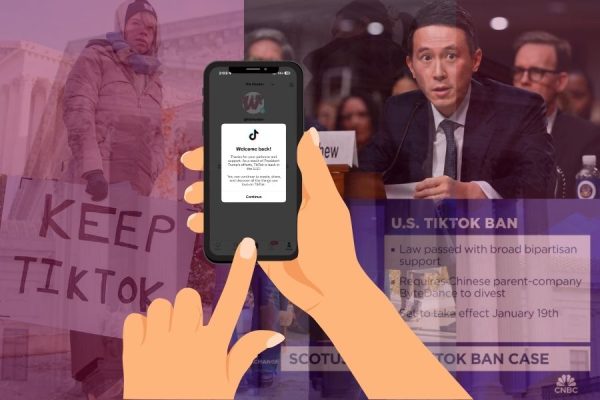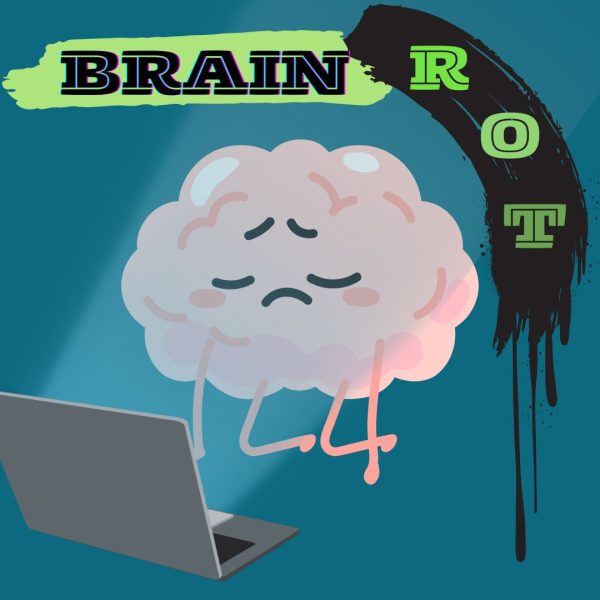The misunderstood lessons of To Kill A Mockingbird
A Southern Mississippi school district sparks controversy by removing To Kill A Mockingbird from classrooms.
 Staff Graphic by Maxwell Bryn
Staff Graphic by Maxwell Bryn
Earlier this October, the Vice President of Biloxi School District confirmed thatTo Kill A Mockingbird (TKAM) was removed from the eighth-grade reading list because “some language in the book…[made] people uncomfortable”. But, this alone is not a valid reason for banning a book with as strong of a lesson as TKAM. Considering the many bannings of Harper Lee’s Pulitzer Prize-winning novel, which can be found throughout the book’s history, including last year when it was removed from a school system in Virginia, or in 2004 when it was challenged by a middle school here in North Carolina, the recent removal of TKAM from a Southern Mississippi school district’s curriculum probably didn’t come as a surprise to many.
The removal of offensive and hateful ideas from schools is an effort that most people can get behind, but removing TKAM is counterintuitive in this effort. The novel does show blatant bigotry and racism, but it frames these hateful ideas in a way that shows the evil behind them, it does not promote them. The novel serves to teach the value in open-mindedness and equality. The fact that some people feel uncomfortable about the language used in the novel shows that we are growing into a more accepting society, but the reaction to this discomfort should not be to turn away or to ban the books from a school system.
The line between a historical piece that should be removed because it no longer represents our society, and one that should remain to teach people a lesson of society’s growth is sometimes blurred and misunderstood. This confusion is shown in the controversy around taking down Confederate monuments and flags, where people are conflicted on what purpose the symbols serve. While some believe that the monuments have historical value and should remain where they are, others think they shouldn’t be honored.
According to The New York Times, a city council president in Florida “called for all Confederate monuments to be moved from city property to a museum.” This sort of controversy is understandable, but the case with TKAM is much more clear than that. Unless one disagrees with the lessons taught in the novel, there’s no way to perceive the novel as an offensive piece of literature. TKAM still promotes values that we should embrace as a country, and it condemns any examples of hate, intolerance, and inequality. According to The LA Times, a mother who complained about offensive words in the book back in 2016 thought that “the book’s use in schools would teach children that using the racial slur was acceptable.” However, there is no point in the novel where the use of racial slurs is encouraged.
The argument that TKAM makes some feel uncomfortable is an acceptable argument. Discomfort is not only normal and expected when dealing with topics like racism, but it’s also necessary in order to learn. The most important lessons often come along with discomfort; nobody feels comfortable in history class when learning about the Holocaust or slavery, just like how nobody feels comfortable facing the racism in our country’s recent past which is put on display in TKAM. Students aren’t supposed to feel comfortable reading TKAM, the blatant racism shown in the book should scare and shock them, while also warning them that people are capable of that behavior. Though the novel makes students uncomfortable, that is absolutely not a just cause to remove the book.
It’s clear that there are problems in our country, very few people would deny that, but removing a beloved classic won’t help. All arguments siding with the banning of To Kill A Mockingbird fall flat when you take the book as a whole into consideration. Merely looking at the offensive words and ignoring their context gives an obscured idea of what the book is really about. The complaints that the school board in Biloxi, Mississippi brought up are understandable, but they shouldn’t have lead to the removal of the book; the concerns should have been used as an opportunity to teach people the importance of the novel and the necessity of feeling uncomfortable in order to truly learn a lesson.








